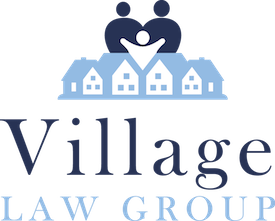For many individuals and couples, the dream of starting their own family is complicated by an inability to conceive. Until recently, their only choices would have been to adopt children or remain childless. Now, with strong advances in reproductive technology, these people can fulfill their shared dream of becoming parents.
Assisted Reproductive Technology (ART) is technology utilized to achieve conception using gametes from either donor(s) and/or intended parent(s). The most common forms include:
- In Vitro Fertilization (IVF): a series of procedures in which eggs are retrieved by a physician from a woman’s ovaries (either a donor or an intended parent) and fertilized with sperm (from either a donor or an intended parent) before being transferred to the womb (of either an intended parent or a gestational carrier).
- Intracervical Insemination (ICI): a treatment in which sperm is injected directly into a woman’s cervix. This can be performed at home.
- Intrauterine Insemination (IUI): a treatment that facilitates fertilization by placing sperm directly inside a woman’s uterus.
- Intracytoplasmic Sperm Injection (ICSI): a technique in which a single sperm is injected directly into the egg, which increases the chance of fertilization.
In all cases, either the egg or sperm (or both) may come from the intended parents or a known or unknown donor.
Another form of assisted reproduction is the use of a surrogate. This is a woman who carries a child to term on behalf of the intended parents. She may be a gestational surrogate, meaning that she carries an embryo created from the eggs of a donor or intended parent and sperm from a donor or intended parent. A traditional surrogate is a woman who carries her own egg, which has been fertilized with sperm from an intended parent or a donor. Traditional surrogacy is very risky, psychologically and legally, and is rare in North Carolina. Most physicians will not assist with a traditional surrogacy.
While ART has made it possible for more couples to have families of their own, it is also surrounded by complex legal questions that include:
- Establishing legal parentage of the parents, even if they are not genetically related to the child;
- Compensation issues;
- Confidentiality issues;
- Known donor contracts;
- Insurance coverage and medical expenses for surrogates; and more.
It is therefore essential that aspiring parents, surrogates, and donors in North Carolina seek experienced legal counsel with a strong background in ART laws in order to protect their rights and those of the child being conceived.
Contact Us
At Village Law Group, we provide representation and support to individuals and couples who wish to use a form of Assisted Reproductive Technology to have children. We have years of experience with donor and surrogacy contracts, and regularly obtain court orders to have the intended parents’ names placed on their child’s birth certificate.
Attorney Jennifer Tharrington is a fellow of the esteemed Academy of Adoption and Assisted Reproduction Attorneys (https://adoptionart.org) and has advised many local clinics and their patients on legal matters related to assisted reproduction. Attorney Tharrington and her team will help ensure that everyone’s interests are clear and protected. For more information or to begin this exciting new process in your life, contact us today.
Latest posts by Jennifer Tharrington (see all)
- Donor-Conceived Children—Telling Your Child’s Birth Story: Why, When, and How - December 13, 2023
